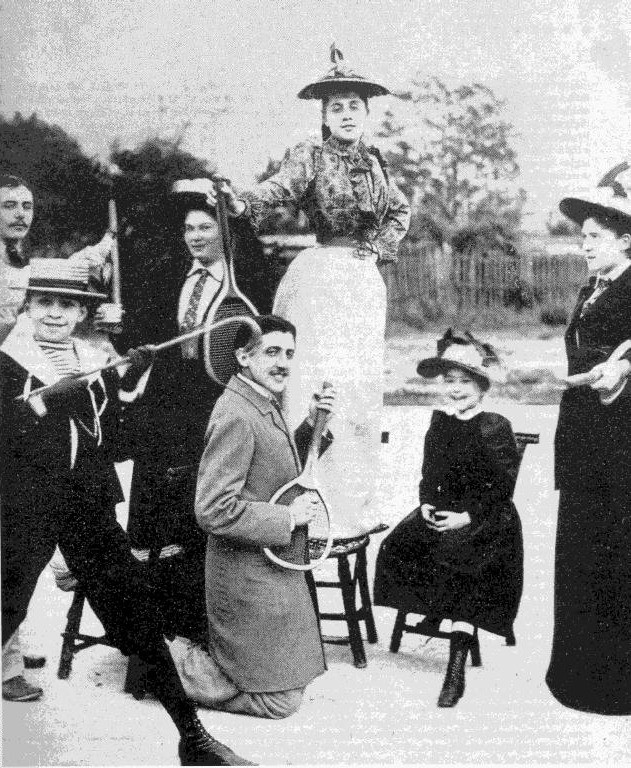Interviews
It Is Strange to Be a Human: an Interview with Author Chelsea Martin

I think of Chelsea Martin’s work — her chapbooks Dream Date and What I Want and What I Want, her book Even Though I Don’t Miss You, and her most recent project, Mickey — as a body of writing that resists categorization, resists genre, and — to some extent — resists interpretation. They feel more like experiences than books, though one is always cognizant of the fact that they’re of course both. She’s a master of tonal management and a sentence-level stunner, packing big wallops of feeling in small sections of text. I envy the way she writes about the gestures both large and small that constitute a togetherness between two people; the ways in which even the most seemingly benign of these gestures can be extremely fraught and consequential, and the way the seemingly grand gestures can land wholly misperceived, or else unnoticed altogether. She writes that element, that dynamic of disconnect and contradiction in relationships, especially the relationship one has with oneself, unlike anyone else I’ve ever read, and I am forever in anticipation of what she puts out into the world next.
It was a pleasure to speak with Martin about her work — specifically her latest project, Mickey, a novel out now from Curbside Splendor Publishing.
Vincent Scarpa: I know that poets and fiction writers alike often have to face the presumption that the “I” in the work is the writer herself. Reading interviews with you, though, it appears you face that presumption more than most. It seems like this happens more often to women writers, for reasons I don’t claim to have a full understanding of but which I suspect have something to do with power relations. In your chapbook What I Want and What I Want, the disclaimer in the beginning reads, “Some of these pieces originally appeared as fragments of real life conversations, but don’t worry, I’m perfectly stable and particularly non-crazy. Ask almost anyone.” Which seemed to me a rebuke — or, at the very least, a tongue-in-cheek acknowledgment — of this presumption. It reminded me of something Grace Paley said about her character Faith, from whose perspective she wrote many stories. When asked if she was in fact Faith, Paley responded, “No, she works for me.” I wonder how all of this affects your writing, if at all, and if you’re setting out to blur the line between fact and fiction in your work, specifically with Mickey, your latest.
Chelsea Martin: I do get asked about this a lot, and I don’t understand why. Creating a character that feels real is a pretty standard thing to try to accomplish. The fact that I am creating characters that are not entirely different from myself also doesn’t seem original. And what if my narrator was based in part or entirely on myself? Is that… interesting? I mean… how would it be more or less interesting to a reader? That’s what I keep wondering when I’m asked about this.

I wouldn’t say I was setting out to blur the line between fact and fiction while writing Mickey. (Maybe I was doing that in my last book, Even Though I Don’t Miss You, by naming the protagonist Chelsea.) I think I would say it was closer to trying to “become” the narrator while writing her. I wanted it to feel like her book, and not a book that had been written about her. I assumed readers would believe that she was me, or at least a version of me, and I was fine with that because I think this closeness allows the reader to trust/believe in the character more. I also have my own sense of humor that I work into most of my work. So that probably takes away from the characters feeling different from one another/fuels the presumption that they are all me and not characters. I’m fine with that.
I also tend to write things that are personal and meaningful to me. Not personal as in these are exactly my experiences, but they are experiences I care about for one reason or another. There are a few real conversations I’ve had that ended up in the book. A few details and things that are based in reality or on people I know. I don’t think writing from your experiences is that unusual in fiction.
VS: One of the things I admire most about your writing is its distinctive syntax, a word I use a fair amount which I suppose really just means I like the way the sentences sound. They feel simultaneously organic and worked, scored. It’s hard to pick just one, but this one feels exemplary of what I’m getting at: “I keep telling myself that what I am going through now could be compared to a breakup, even though what I am going through is precisely a breakup.” (Or, as an alternate, “The music was almost as boring as the company.”) I sense, reading your work, the way I do reading someone like Jo Ann Beard or Mary Robison, a voice on the page that is unmistakably unique to the writer. Do you read your work aloud in drafting? Is there much tweaking from line to line in revision? Or do the sentences just come out this way — endearingly caustic, sometimes biting, sometimes quietly devastating. It’s a trademark of your work, I think: this mastery over tone at the level of the line.
CM: Thank you. No, I don’t read aloud while writing. I am obsessed with privacy in early stages of writing and would never risk anyone hearing me. Sometimes sentences come out pretty good the first time I write them, but mostly, yeah, there is a lot of tweaking.
VS: Reading the novel, I was reminded of a sentence from a Lydia Davis story in which she says, “As soon as there is less in a story, more of it must be in the center.” Mickey, like so much of your work, feels stripped not just of excess, but of certain kinds of narrative conventions altogether, thereby placing the voice and the observations it makes in the center, as the engine of the text. What attracts you to this kind of form, this modality of writing? Or is it inverted — is it the form and style that found you?
CM: Mickey is an emotional book, and short fragments are the most natural way to express an emotional mindset. I think the fragmentary style works well for capturing these disjointed or contradictory thoughts without having to address the disjointedness. Each thought gets its own page, space to be its own thing, without having to directly reflect all the other competing fragments.
That’s the value I see in the style as I see it now, having mostly finished writing it over a year ago. I don’t like to think a lot about why I’m making artistic choices while I’m working. One thing I learned in art school is that if you’re analyzing the meaning of your work as you’re making it, you’re going to find a lot of things to be critical of, and you’re going to want to change what you’re doing so that you’ll be able to talk about why you did it this certain way. I think art that has all these reasons for existing and being a certain way tends to be boring or flat. I like art that explores something that isn’t figured out yet, an exploration of a feeling that is trying to surface, however messy.

VS: In many ways, Mickey seems to me to be a book about indecisiveness, about diametrical opposition of mood, thought, and action. I can imagine someone in a creative writing workshop saying that the narrator is “unlikable” or “difficult to understand” for this reason, and perhaps it’s because I’m either or both, but I find her all the more realistic precisely because of how mealy-mouthed she can be; precisely because of her dithering. She feels the most human to me, the most alive, when she’s pursuing something or someone she knows she doesn’t want, or won’t want for very long. Isn’t contradiction the most honest way to report one’s state? There’s a passage toward the beginning where the narrator seems to address this: “It shouldn’t be assumed that I want to be a sympathetic character in the story of my life, because that would imply that my actions are designed to convey something that other people might find attractive or relatable instead of my actions having their own meaning, separate from others’ interpretations.” I wonder if you could speak to this a bit.
CM: I didn’t intend for her to be likable, but I don’t find her unlikeable, either. I like her. I agree that she might seem difficult to understand, but I don’t know why that would take away from her likability. Most people are difficult to understand. I find myself difficult for me to understand. Part of what makes me interested in being alive is trying to understand why or how I make the choices I make. That’s what makes me interested in other people as well.
It seems like people really shy away from their own contradictions.
It seems like people really shy away from their own contradictions. They don’t want to admit they’re contradicting themselves, or they try to reframe things so that it seems like there are no contradictions. I think people do this so that they seem reliable or logical to other people, so that those people will trust them, but they are actually deceiving people, making themselves less trustworthy, and the whole situation becomes yet another human contradiction.
VS: The narrator makes a few observations about “evolutionary sense” and “evolutionary adaptations,” which is something that showed up a bit in Even Though I Don’t Miss You. I love these moments, because they seem to point to what I think of as the existential question in the margin of your work: For what are we equipped? And what happens when we endeavor to do that for which we have no instinct? If I’ve identified these interests correctly, or if I’ve come close enough, I’d love to hear you talk a bit about why you find these interests so generative in writing.
CM: It is strange to be a human. We are animals, but we don’t act like animals. We live in houses and we stare at screens all day and we express our personalities through clothing and we keep useless objects around for sentimental reasons and we spend most of our lives taking part in a system of currency that makes most people unhappy and we criticize other people for the way they do or do not do these things.
What happened in our evolutionary history that made us, as a people, so quick to get political in YouTube comment threads?
Evolution is an amusing context for these kinds of thoughts because our behavior doesn’t have any meaning when I think of us as animals, as a set of genes struggling to survive to the next generation. What happened in our evolutionary history that made us, as a people, so quick to get political in YouTube comment threads? Are people who closely follow the lives of the Kardashians going to be more or less likely to pass on their genes? And if closely following their lives isn’t going to have any effect on gene duplication, what is it for? What are the Kardashians even for?









